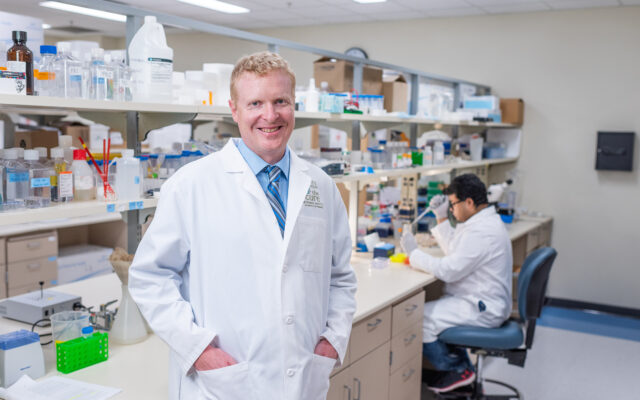Hormel Institute and Mayo Clinic scientists publish research focused on preventing inflammation and pathology associated with sunburn

A team of scientists co-led by Luke Hoeppner, Ph.D., Assistant Professor and leader of the Cancer Biology research section at The Hormel Institute, and Stephen Ekker, Ph.D., Professor of Biochemistry and Molecular Biology at Mayo Clinic and Dean of the Mayo Clinic Graduate School of Biomedical Sciences, recently published findings from preclinical studies that could lead to treatments that reduce inflammation and pathology associated with sunburn. The article, “Vascular Endothelial Growth Factor as an Immediate-Early Activator of Ultraviolet-Induced Skin Injury,” was published in Mayo Clinic Proceedings, a premier general medicine journal.
The negative effects of sunburn are relatively common and can range from simple redness to hospital visits and are known to eventually induce inflammation. For example, in the United States, sunburn leads to 30,000 emergency room visits every year. Repeated sunburns can cause skin cancer. While current treatments relieve the pain and symptoms, those approaches do not reverse the cumulative effects of sunburn, in part because they only target secondary or tertiary effects of UV exposure. Dr. Hoeppner and his team report on an early molecular cause of sunburn.
The authors emphasize that future clinical studies would be needed to determine the possible value of VEGF inhibitors as a topical sunburn treatment in humans.



